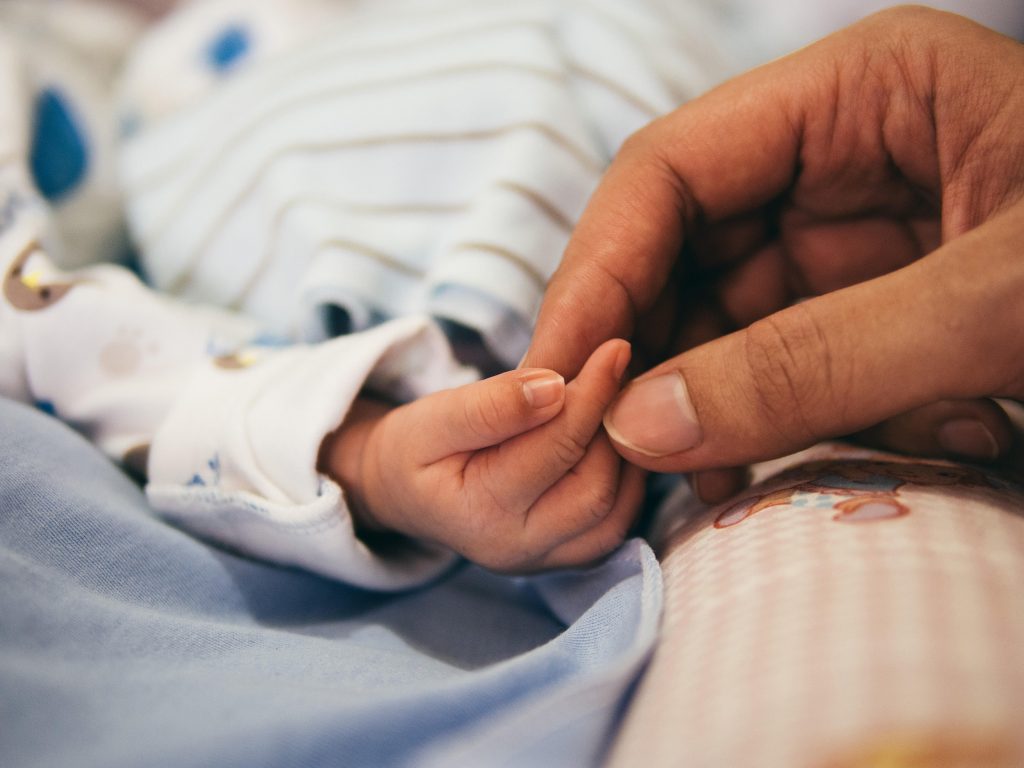Overcoming Postpartum Depression

I have struggled with depression and anxiety throughout my life and managed it as well as I thought possible, using therapeutic interventions and medication. For a long time, I had it under control. It wasn’t until I had my third child that I was hit with the big one: Postpartum depression. When I had my boys, I had iterations of what they call “the baby blues.” I would have mood swings and break out in tears for no reason. It only lasted a week or so and I was told this was mostly due to hormones. It passed and I felt better.
But when my daughter came along, I fell into a depression like I had never experienced before. Every person is different, so every woman experiences postpartum depression differently. A woman could experience some or all of theses symptoms in different combinations:
- Feeling sad, hopeless, empty, or overwhelmed
- Crying more often than usual or for no apparent reason
- Worrying or feeling overly anxious
- Feeling moody, irritable, or restless
- Oversleeping, or being unable to sleep even when her baby is asleep
- Having trouble concentrating, remembering details, and making decisions
- Experiencing anger or rage
- Losing interest in activities that are usually enjoyable
- Suffering from physical aches and pains, including frequent headaches, stomach problems, and muscle pain
- Eating too little or too much
- Withdrawing from or avoiding friends and family
- Having trouble bonding or forming an emotional attachment with her baby
- Constantly doubting her ability to care for her baby
- Thinking about harming herself or her baby
Personally, I dealt with feeling sad and hopeless; I cried all the time, I had trouble concentrating, and I lost interest in most things. I had the attachment to my daughter and I did what I needed to do to care for her, I just wasn’t happy. I remember having to go out on my deck several times a day just to sit and feel the sun on my face because I inherently knew that I needed the sunshine to get me through the next few hours of the day.
Two things happened that made me realize I needed help and that I had postpartum depression. The first was my husband expressing concern that I seemed to not have any interest in the things I loved to do most. I wasn’t reading or socializing, I didn’t even have the energy to play with my iPad or conversate. The second was when I called my doctor to ask about a small non-important health issue and burst into tears, becoming hysterical on the phone. The nurse quickly called me back and wanted to get me in for a same day appointment, not for the small health issue, but because of the reaction she heard and the fact that I had just had a baby 3 weeks previously.
After speaking with my doctor and discussing my symptoms, it was determined that I was struggling with postpartum depression. After researching the antidepressant that I had been on for years and had subsequently gone off for my pregnancy, my doctor and I felt that it was safe to resume at 3 weeks postpartum. Between my medication, support from my family, and some small interventions I began to feel better.
If you need medication for your depression and it helps, it’s a good first step in getting better. Here are some steps to help if you find yourself suffering, along with some natural remedies if medication is not for you.
- Talk to your doctor. My obstetrician (OB) was amazing, for recognizing from a phone call that I needed help, for helping me come up with a plan to get well, and also for following up with me often to make sure I was on the right track. OB’s are trained to support women who suffer from postpartum depression and can help you connect with the best resources available.
- Talk to your family. Tell your family how you feel. Let them know that you are struggling and that you need help. Let them support you, it’s okay to need them and there is no shame in letting them help you.
- Clean up your diet. Believe it or not, the food you eat can greatly impact your mood. A balanced diet with plenty of vegetables, fruit, nuts, seeds, organic/grass-fed animal protein, and healthy fats such as olive oil and avocado will help you feel your best. Remove the refined carbohydrates and sugar such as bread, pasta, pastries, cookies, etc. that can spike your blood sugar and cause you to come crashing down, making your mood worse. Most women also benefit from a comprehensive prenatal multivitamin/mineral supplement with extra vitamin D and omega-3 fatty acids which can help with mood.
- Get plenty of rest. A new baby is hard on anyone, between breastfeeding (if you are able), which burns an average of 200 to 500 extra calories per day, sleep deprivation, and crying (both you and the baby), rest is not a top priority. They tell you “sleep when the baby sleeps!”, but in my experience, this is hard to do. It seems to be the only time to straighten up the house, get that much needed shower, and eat, but this is where you can let a few things go. If you have to ask a family member to pick up or make food, it’s okay! Try to nap as often as possible when the baby is asleep to help your body recharge. The less sleep you get, the more stressed your body will be and the more depressed you can feel.
- Exercise. The last thing you want to do when you are tired, cranky, dirty, and hungry is exercise, but exercising even lightly can release natural endorphins in your brain that make you feel good. If you haven’t yet reached that 6-week exercise mark, you can always go for a light walk, not just for the exercise but for the fresh air and sunshine. I found that when I was suffering from postpartum depression just sitting out in the sun for 20 to 30 minutes at a time helped my mood. If you’re in a season or place when the sun isn’t prevalent you can always try a sun lamp or light box, too.
Remember that you are not alone, as many as 1 in 7 women experience postpartum-depression, according to the American Psychological Association. If you are experiencing any of the symptoms listed for PPD please talk to your doctor. For more information you can visit the following sites:
- https://www.postpartum.net/
- https://postpartumhealthalliance.org/
- If you need immediate support please call the San Diego Access and Crisis Line at (888) 724-7240. The toll-free call is available 24 hours a day, seven days a week.
And make sure you talk to other mothers who have recovered from PPD. It’s not your fault you feel this way and there are many things you can do to get back to feeling like yourself.

